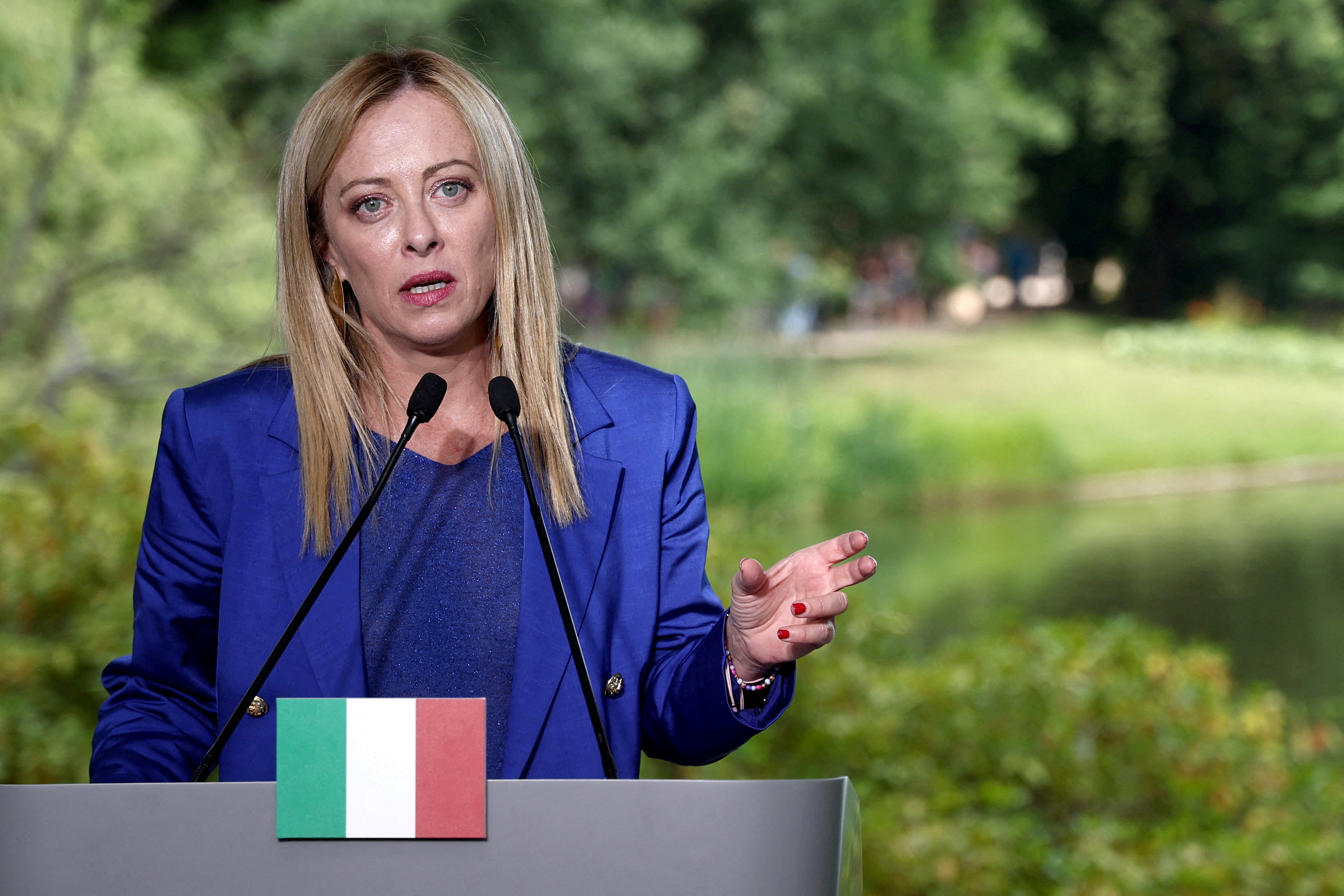

Italian Prime Minister Giorgia Meloni and Polish Prime Minister Mateusz Morawiecki hold a joint press conference in Warsaw, Poland, July 5, 2023, REUTERS/Kacper Pempel/File Photo Acquire Licensing Rights
MILAN/ROME, Sept 30 (Reuters) – Italy on Friday increased its estimate for debt issuance this year due to its worsening state finances and delays in transfers from the European Union, the only major euro zone country to do so.
The upward revision comes as Rome’s borrowing costs are steadily increasing amid growing scrutiny from investors concerned about its weakening economy and fiscal slippage.
In its issuance programme for the fourth quarter released late on Friday the Treasury raised its estimate for gross debt issuance this year to 333 billion euros ($351.95 billion).
That compared with its forecast of 310-320 billion euros made at the start of the year.
The increase will push up Rome’s record 2.85-trillion-euro public debt, already the second highest in the euro zone as a proportion of gross domestic product (GDP) after Greece’s.
Other European countries have moved differently this year.
Germany reduced its needs in the fourth quarter by 31 billion euros ($32.59 billion). Portugal and the European Union took similar steps.
France raised its bond issuance next year due to an increase in debt redemptions but left unchanged its plan for this year.
Forecasts approved by the government on Wednesday estimated the debt-to-GDP ratio would be stable at around 140% from 2023-2026, rather than declining towards 60% as was required under European Union budget rules before they were suspended in 2020 due to the COVID-19 pandemic.
The Treasury’s latest Economic and Financial Document issued on Saturday also projected 23.5 billion euros of measures through 2025 to be financed through extra budget deficit.
DELAYED EU FUNDS
The Italian government’s funding needs are being further complicated by its difficulties in meeting policy conditions set by the European Commission in return for billions of euros of post-pandemic Recovery Funds.
JP Morgan predicted in a note to clients on Friday that a delay in receiving an overdue second tranche of the EU funds would lead to an increase in Treasury bill or bond issuance this year to cover the temporary funding shortfall.
The Treasury has so far covered around 80% of its 2023 gross funding needs, it estimated on Friday. Analysts had previously estimated a figure of around 90%.
Meanwhile, Rome’s borrowing costs are rising.
The gap between Italian and German 10-year yields – a gauge of market sentiment towards high-debt Italy – rose to 200 basis points in early London trade on Friday, the highest since March.
At Italian auctions on Thursday 10-year BTP yields touched their highest level in 11 years.
At end-August Italy’s average cost of funding stood at 3.62%, the highest level since 2008 and up from 1.71% in 2022, the Treasury said.
Prime Minister Giorgia Meloni said on Friday she was not worried by the recent rise in Italian bond yields.
For the fourth quarter, the Treasury estimated gross issuance of medium and long-term bonds at around 60 billion euros, with issuance net of redemptions seen at a negative 12 billion euros over the same period.
($1 = 0.9462 euros)
Additional reporting by Giuseppe Fonte, editing by Gavin Jones
Our Standards: The Thomson Reuters Trust Principles.






